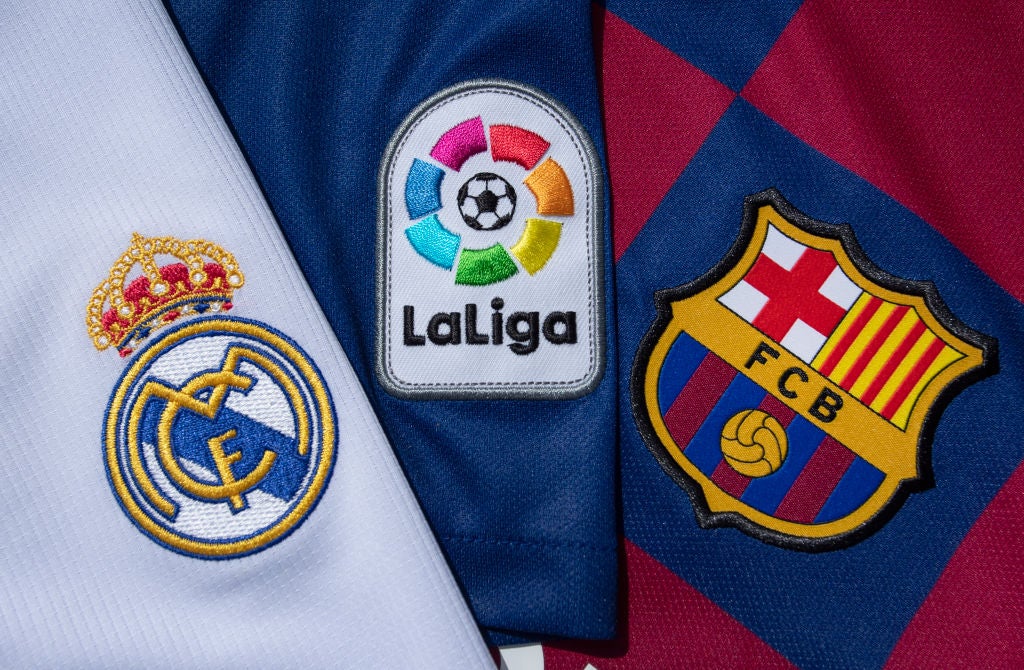
A Madrid court has rejected an injunction request by Spanish soccer clubs Athletic Club, Barcelona, and Real Madrid against LaLiga’s commercial agreement with private equity firm CVC Capital Partners.
The three clubs had requested the preventive suspension of the agreement between LaLiga and CVC after it was ratified by the league’s general assembly on December 10, as well as the removal of enforcement measures relating to resolutions concerning the ‘LaLiga Impulso’ (Boost LaLiga) project.
Injunctions requested last month with the same objective were also rejected by the 15th Court of First Instance of Madrid.
A hearing of precautionary measures took place in the court on February 24.
The clubs sued LaLiga and CVC over their recently concluded tie-up in which the firm will invest €1.99 million ($2.23 billion) to clubs under a 50-year agreement.
Athletic, Barcelona, and Real Madrid, chose to take legal action against the league and private equity group after claiming their partnership will cause “irreparable damage to the Spanish soccer sector as a whole”.
How well do you really know your competitors?
Access the most comprehensive Company Profiles on the market, powered by GlobalData. Save hours of research. Gain competitive edge.

Thank you!
Your download email will arrive shortly
Not ready to buy yet? Download a free sample
We are confident about the unique quality of our Company Profiles. However, we want you to make the most beneficial decision for your business, so we offer a free sample that you can download by submitting the below form
By GlobalDataHowever, the court order concluded that it is “not appropriate to suspend the agreement and its repercussions” and considers that "it must be taken into account that the suspension measure sought would mean the freezing of effects already initiated or executed.”
Furthermore, the court noted that “the agreement was approved by a vote in which 38 of the 42 clubs” were in favor and that the situation does not financially affect the clubs requesting the measure.
It added that “the adoption of this measure would superimpose the criteria of a minority against the choice made and consented to by the majority.”
The court also stated that the request from the three clubs “is not necessary to ensure effective judicial protection”, and urged the “need for extreme caution in the decision” to adopt this type of measure.
Initially, CVC agreed to invest around €2.7 billion ($2.92 billion), but Athletic, Barcelona, and Real Madrid, as well as one second-tier team, opted out of the deal, which saw the firm reduce the figure accordingly in order to only support the clubs in favor of the move.
LaLiga had agreed that the teams in opposition would not relinquish their broadcast rights income, but would not receive a share of the CVC money.
The court order went on to say: “The risk alleged by the three clubs blurs the purpose of the injunctive relief. The requested suspension would only entail the blocking of what has already been executed, as the acts derived from the Boost LaLiga agreement have already taken effect.
“This also takes into account that in the case of social actions the principle of minimum interference must apply until the final decision is taken.”
LaLiga first agreed a long-term deal with CVC last August, with the two parties combining to create a new commercial arm to support both the top Spanish league’s global growth plans and the financially-stricken clubs that have suffered heavily due to the Covid-19 pandemic.
The two parties recently formed a new holding company known as LaLiga Group. The 38 clubs received an initial financial injection of €400 million ($433 million) from the deal in January and a further €298 million ($322 million) in early February.
Of that sum, €220 million is going to clubs that form part of Boost LaLiga and another €78 million to strategic projects promoted by the new holding company.
LaLiga has transferred its business areas to the new LaLiga Group International holding company, in which CVC will hold an 8% stake for the next 50 years.
The first two financial payments made to clubs represent 35% of the €1.99 billion figure. The first €1 billion ($1.1 billion) of investment will have been received by July 2022, with the remaining capital due across 2023 and 2024.
Overall, €395 million ($427 million) of the first €400 million ($433 million) of investment has already been made available to clubs, 39% of which has been earmarked for growth investments.
The funds will be used for the improvement and remodeling of stadiums and sports complexes, and the adaptation of pitches to meet television regulations, while 34% will be used by clubs to pay off debts.
In further developments, Barcelona are reportedly set to enter into negotiations with LaLiga and CVC over potentially accepting investment from the LaLiga Impulso project after losing the legal case.
The Catalan club is believed to be working on the legal framework of a potential agreement with the aim of taking on the funds as income instead of debt, according to Spanish outlet 2Playbook.
The financial injection would allow Barcelona to balance its books for the 2021-22 season and discussions are expected to take place over the coming weeks.
The move would represent a significant u-turn by the club following the legal proceedings.
Barcelona is now exploring an alternative solution and could receive up to €270 million ($292 million) from the LaLiga Impulso deal if they choose to get on board.
Doing so would boost the club’s finances for this year, which has a hole of more than €100 million ($108 million) in terms of income. It would also help manage a debt that has spiraled to well over €1 billion ($1.1 billion) over the last two years.







